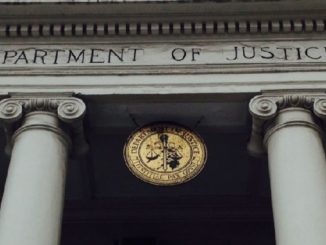
Roughly one-quarter of mass shootings happen in the United States because the perpetrator was driven by either a conspiracy theory or a hateful ideology, a recent study by the US Secret Service (USSS) has concluded.
USSS is a federal police agency tasked with protecting the US president and other senior members of the US government.
The study results come in the wake of the bloody start of 2023 which has seen 39 mass shootings in just the first three weeks with dozens of lost lives.
Highlighting observable behaviors that should be a cause for concern, the agency undertook the research to help communities identify rising threats and address them before they become violent.
The Secret Service’s 60-page report details trends in mass attacks in public spaces to share patterns with community leaders who could help prevent the next tragedy. The study was based on 173 incidents – from 2016 until 2020 – in which three or more people were hurt in attacks in public spaces.
Among the key findings of the study, as Lina Alathari, the chief of the Secret Service’s National Threat Assessment Center, pointed out, is the fact that though the single most common motive for an attack (in roughly 50% of cases) was a personal grievance of some sort was, one-quarter of the attackers were actually motivated by conspiracy theories or hateful ideologies, including antigovernment, antisemitic, and misogynistic views.
Noting that at least six of the attackers were radicalized online, Alathari added that they maintained some kind of conspiracy theory beliefs, such as that 9/11 and the moon landing never happened, that the U.N. was sending an armed force to come take away everyone’s guns, etc.
The study also found that most attackers had a history of physically aggressive or intimidating behaviors, they used firearms they had obtained illegally and also exhibited behavior that elicited concern from others.
Many of the attackers had experienced stressful events or a specific triggering event prior to carrying out the attack and more than half of them were dealing with mental health problems before or at the time of their attacks.
According to the USSS’s recommendations, communities should encourage bystander reporting and consider adopting plans for identifying people who may pose a risk of violence.
They also stressed the need for increased scrutiny of hate speech against various groups – especially misogyny – as a key indicator of the potential for violence, singling out online platforms as a key place where people become exposed to hateful ideologies.




Be the first to comment